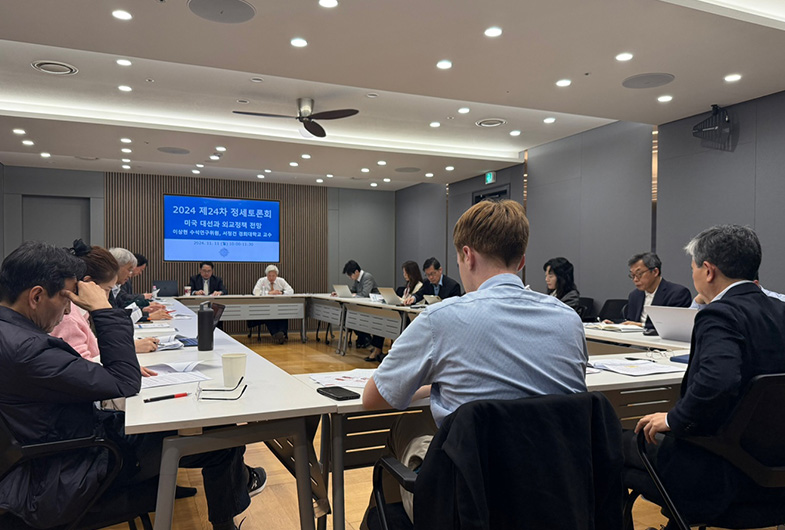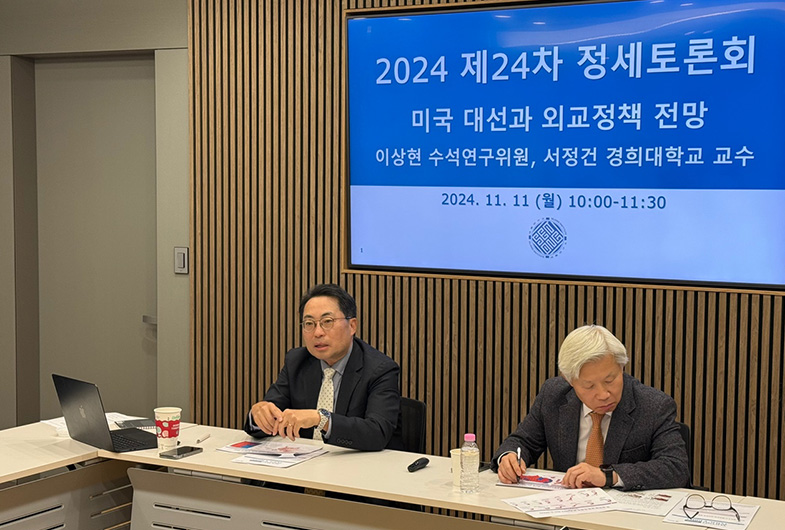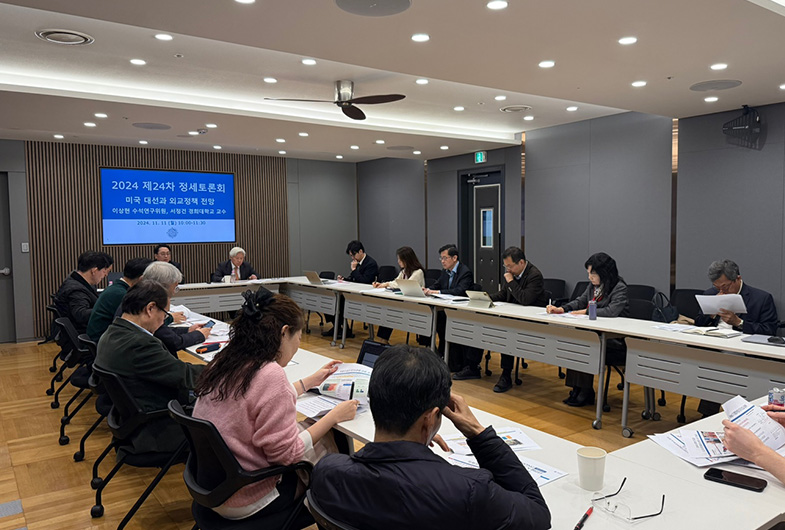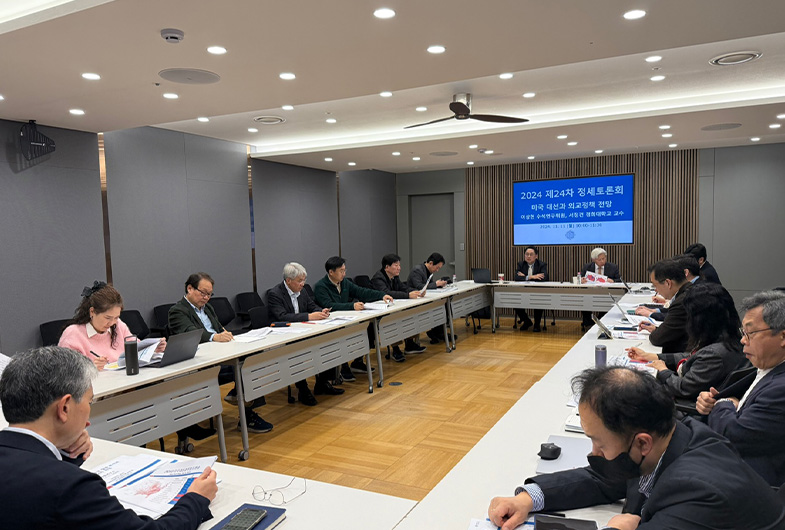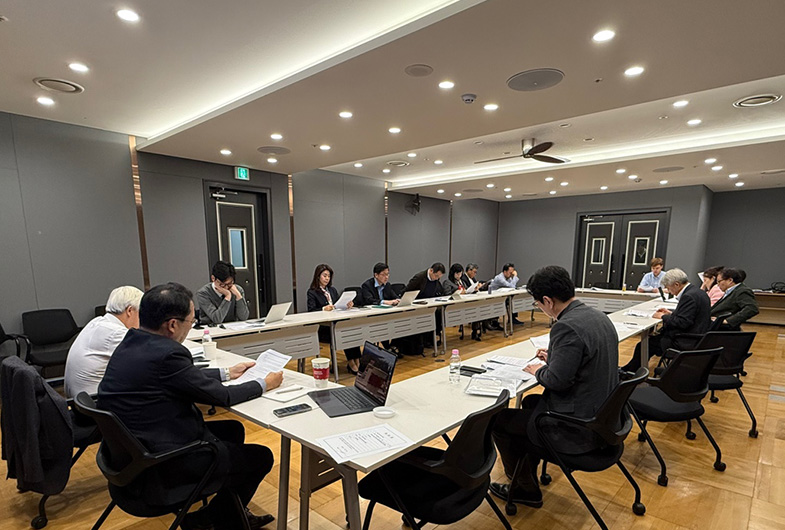On November 11th, Principal Fellow Sang-Hyun Lee and Professor Jung Kun Seo of Kyung Hee University presented "Prospects for the Foreign Policy of the Trump Second Administration" at the 24th Colloquium.
The discussion was moderated by Sung-won Lee, Director of the Center for Security Strategy.
With the U.S. presidential election resulting in Donald Trump's victory, various changes are anticipated in the foreign and security policies of the Trump second administration, set to launch in January next year. In July this year, President Biden hosted NATO’s 75th-anniversary event in Washington, highlighting NATO's role as a symbol of U.S. global leadership, a cornerstone of peace and stability among great powers, and a defender of democracy. However, Trump’s approach-replacing free trade systems with tariff barriers—poses security threats to democratic allies that have relied on the U.S. nuclear umbrella.
Trump's "America First" foreign policy seeks to break away from traditional globalist diplomacy, emphasizing a transactional approach to all matters. This policy addresses the imbalance in which the U.S. bears unilateral costs while other countries reap the benefits. In this context, South Korea faces challenges in maintaining the U.S.-ROK alliance, addressing North Korean policy, managing U.S.-ROK economic relations, and participating in the U.S. strategy against China.
While both Biden/Harris and Trump prioritize U.S. national interests, they differ in approach: Trump uses tariffs, whereas Biden relies on subsidies. With the U.S. trade policy shifting from a champion of free trade to a more mercantilist stance, there is a high likelihood of new tariff wars against strategic competitors like China and punitive measures targeting countries with trade surpluses with the U.S.
In particular, Trump’s China policy is expected to remain transactional and focused on immediate gains. This approach will likely include aggressive tariffs, corporate sanctions, and non-traditional, ad hoc, and transactional measures bypassing conventional diplomatic processes. Consequently, South Korea could suffer collateral damage from the U.S.’s tough trade actions against China, a trend expected to intensify under Trump’s second term.
Trump's North Korea policy will likely center on personal diplomacy, engaging directly with authoritarian leaders. However, it is uncertain whether the U.S. will maintain its stance against North Korea’s nuclear weapons under Trump’s second term. Potential big deals between Trump and Kim Jong-un might result in superficial, showcase summits lacking substantial denuclearization measures. If this occurs, North Korea could gain de facto recognition as a nuclear-armed state, an outcome unacceptable to South Korea.
While the comprehensive strategic alliance between the U.S. and South Korea is unlikely to undergo significant changes, demands for increased defense cost-sharing will persist. Although Trump’s proposals for unrealistic increases may have been electoral rhetoric, some degree of increase seems unavoidable. South Korea should adopt a similarly transactional approach, agreeing to increase its defense contributions but ensuring it secures concessions.
